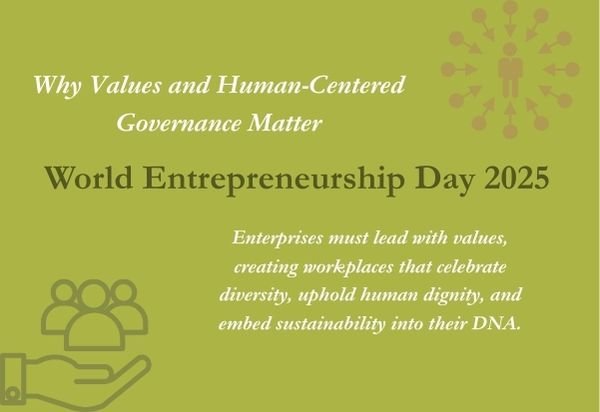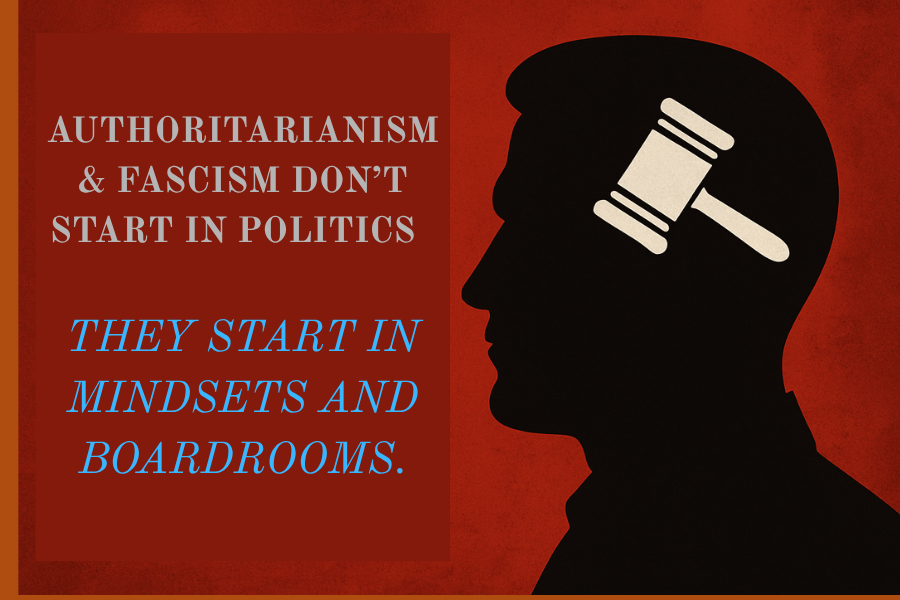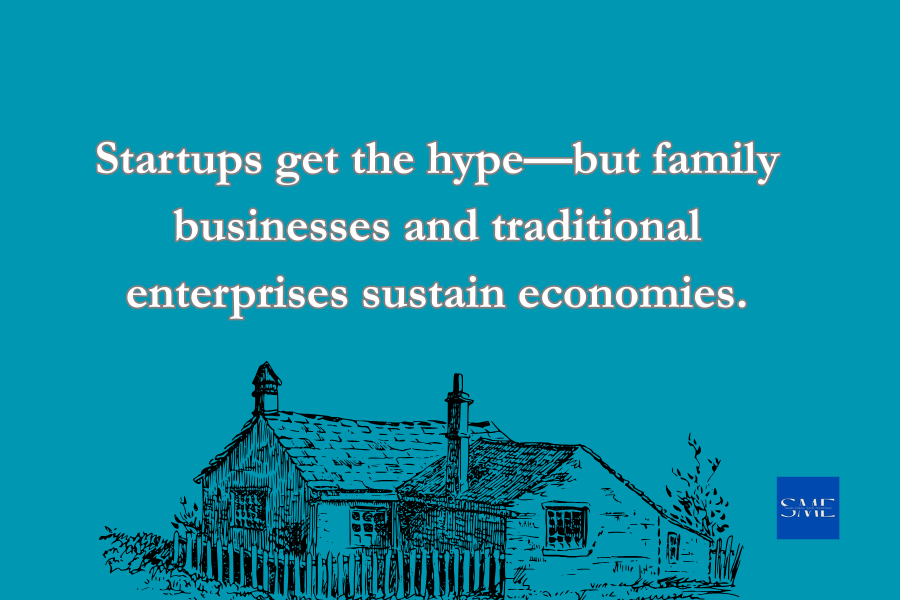Why Startups Aren’t the Only Face of Entrepreneurship
Startups drive innovation, but family businesses and traditional SMEs build resilience, trust, and long-term value. Understanding how these models complement each other is key to redefining entrepreneurship for real-world impact and sustainable economic growth.
The global fascination with startups—high-growth ventures chasing billion-dollar valuations—has reshaped how we view entrepreneurship. Yet startup culture is not the same as entrepreneurial culture. Equating the two narrows the lens through which we understand economic activity and enterprise-building. In India, across the Asia-Pacific, and beyond, startups often attract disproportionate attention, while other forms of enterprise—family-run businesses, local firms, and small manufacturers—remain integral but overlooked.
Startups continue to dominate discourse, but these enterprises account for a relatively modest share of employment. According to data from India’s Department for Promotion of Industry and Internal Trade (DPIIT), the country saw a growth from 452 registered startups in 2016 to over 84,000 by 2022. Yet the total direct jobs attributed to startups stand at around 1.6 million. In contrast, around 57 million Udyam-registered MSMEs reported employing close to 240 million people.
Startups: High Visibility, High Risk
Startups are often associated with speed, innovation, and disruption, but face steep odds. According to the U.S. Bureau of Labor Statistics and similar regional studies, over 90% of startups globally fail, with nearly half not surviving beyond five years. Asia-Pacific and Indian markets reflect comparable trends—failure rates of around 70% or more in some regions, as per Startup Genome and local registries.
Moreover, startup activity remains concentrated. Reports from NASSCOM and DPIIT show that over half of India’s startups are located in just two regions—Bengaluru and Delhi-NCR—limiting the spread of direct economic impact. This spatial concentration, along with sectoral focus in tech and digital services, restricts broader inclusion.
Toward a More Inclusive Understanding of Enterprise
The current narrative tends to pit startups as the default model of innovation, but that view is limiting. Traditional enterprises—ranging from family businesses to small producers—may not operate at the frontiers of technology, yet they represent stable, long-term economic actors. They maintain customer relationships, adapt to shifting markets, and often operate with fewer institutional supports.
That said, these enterprises are not without constraints. Many face challenges in adopting new technologies, attracting skilled talent, or scaling efficiently. This underscores the need for a more integrated view. Startups bring lessons in agility, digital adoption, and ambition. Traditional enterprises offer insights into endurance, trust-building, and navigating uncertainty over time. Both models have their strengths—and their blind spots.
Reframing Entrepreneurship
The focus on startups has, in many contexts, diverted attention from the broader task of enterprise development. When entrepreneurship is reduced to venture capital rounds or tech valuations, it misses the complex realities of enterprise ecosystems—across geographies, sectors, and social contexts. It is time to move beyond the binary and reframe entrepreneurship in more inclusive and realistic terms.
Author Profile

-
Dr. Perumal Koshy writes on economic transitions, small enterprise ecosystems, and development policy, with a focus on inclusive entrepreneurship and systemic change. His work draws from a background in Area Studies and SME research, with writings published in UN Today, Financial Express, Indian Express, and ERENET Journal. He serves as Editor of Global SME News and leads strategic initiatives at The Enterprise Institute and the Enterprise Futures Lab, where he works at the intersection of enterprise, policy, and knowledge systems. Through TDW Publishing, he supports independent voices and enterprise scholarship across the Global South.
Linkedin: https://www.linkedin.com/in/caushie/
Twitter: https://twitter.com/pkoshyin
Latest entries
 Entreprenurs21 August 2025Entrepreneurship, Values, and Corporate Governance: Building Nations, Not Just Profits
Entreprenurs21 August 2025Entrepreneurship, Values, and Corporate Governance: Building Nations, Not Just Profits Africa13 August 2025 A New Landmark Report Calls for Rethinking SME Policies, Digital Readiness, and Sustainable Growth
Africa13 August 2025 A New Landmark Report Calls for Rethinking SME Policies, Digital Readiness, and Sustainable Growth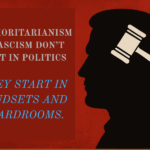 Business7 August 2025Authoritarianism Begins at Work: Why Businesses Must Guard Against the Psychology of Control
Business7 August 2025Authoritarianism Begins at Work: Why Businesses Must Guard Against the Psychology of Control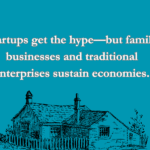 FEATURED31 July 2025What Startups Can Learn from Family Businesses—And Vice Versa
FEATURED31 July 2025What Startups Can Learn from Family Businesses—And Vice Versa



